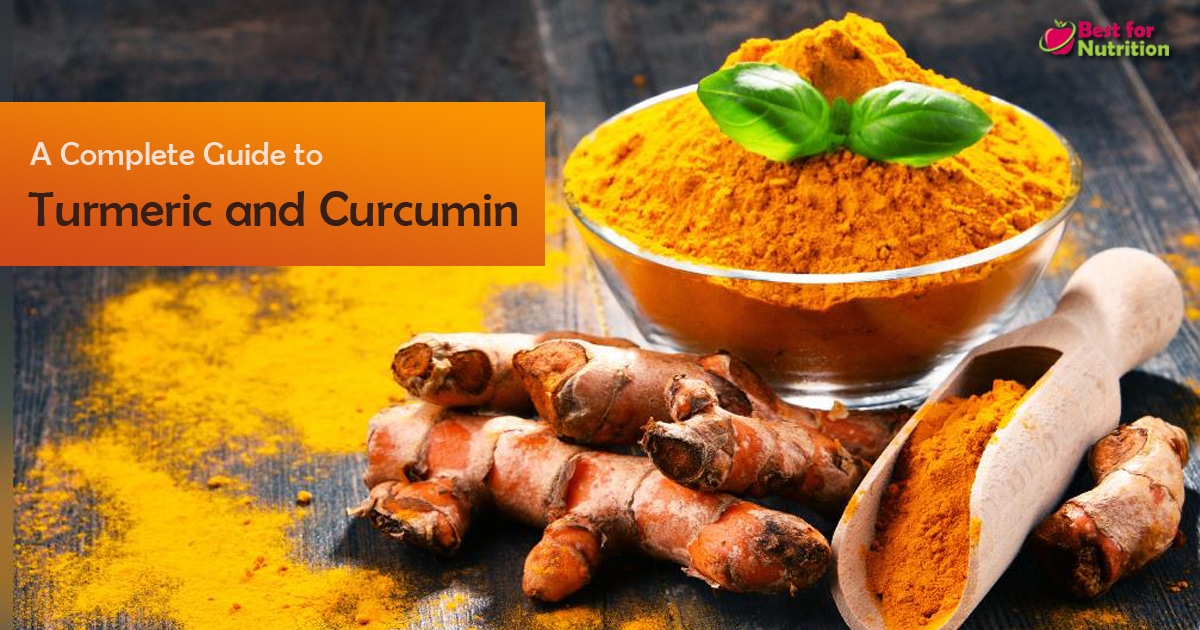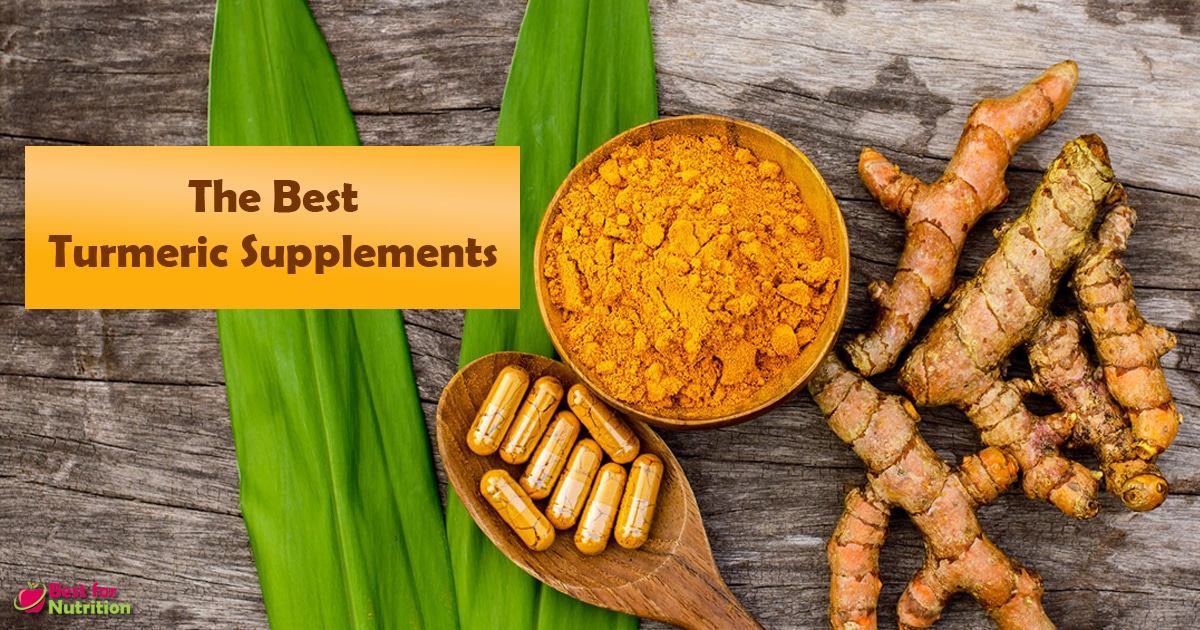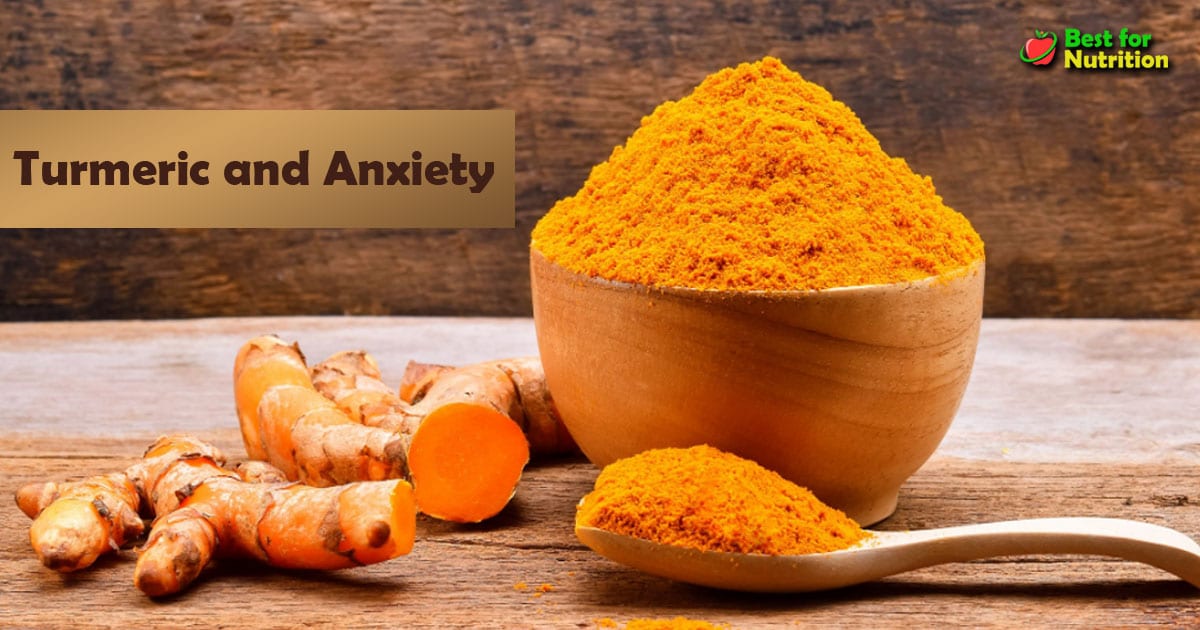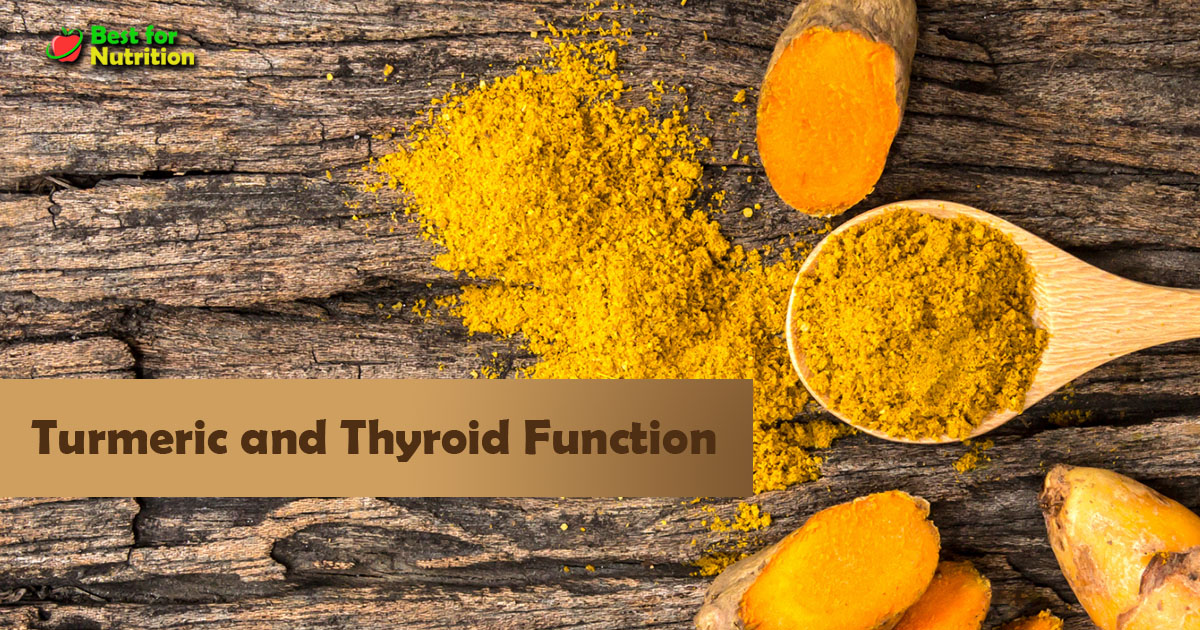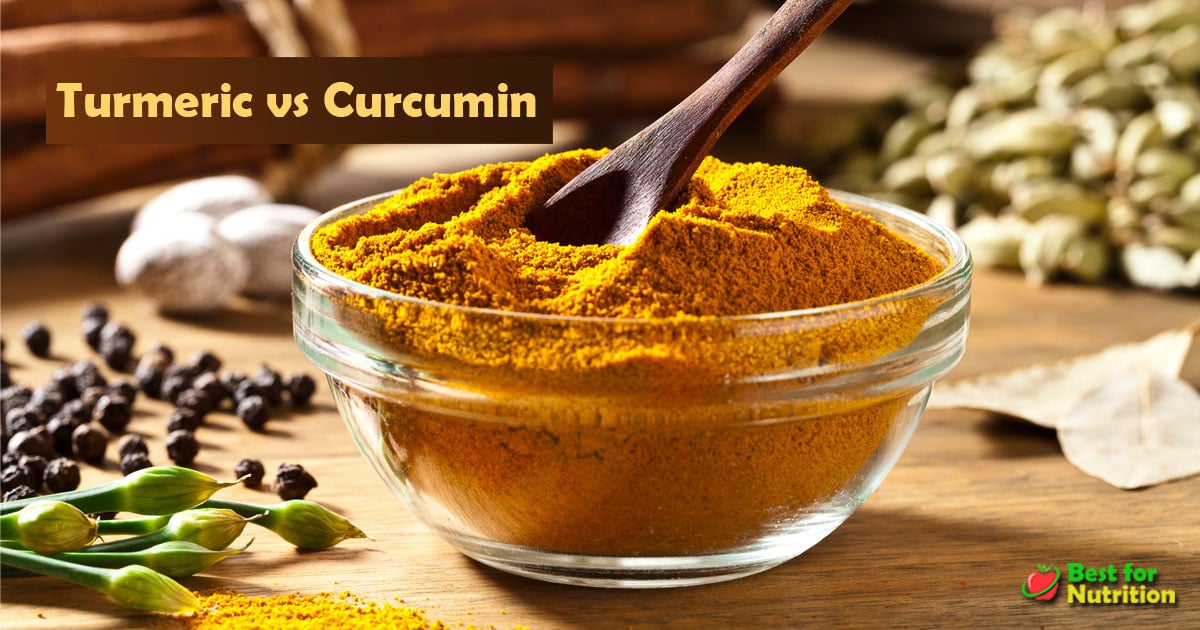Turmeric is a well-known and powerful ingredient of traditional medicine.
This seemingly regular-looking kitchen spice, with curcumin as the active ingredient, has been used extensively in different forms for its positive effects which include anti-inflammatory, anti-anxiety, and analgesic properties.
Turmeric supplements are special formulations that include significant quantities of curcumin for guaranteed positive health benefits as mere incorporation of turmeric in every meal may not be very effective owing to its low bioavailability.
Hence, to reap the maximum benefits, you need to know not only the dosage and the right time of taking turmeric, but also how to improve the bioavailability of turmeric.
- The Health Benefits of Turmeric
- Turmeric Vs Curcumin: How to Take Turmeric Correctly
- The Risks and Side Effects of Turmeric Supplements
- FAQs
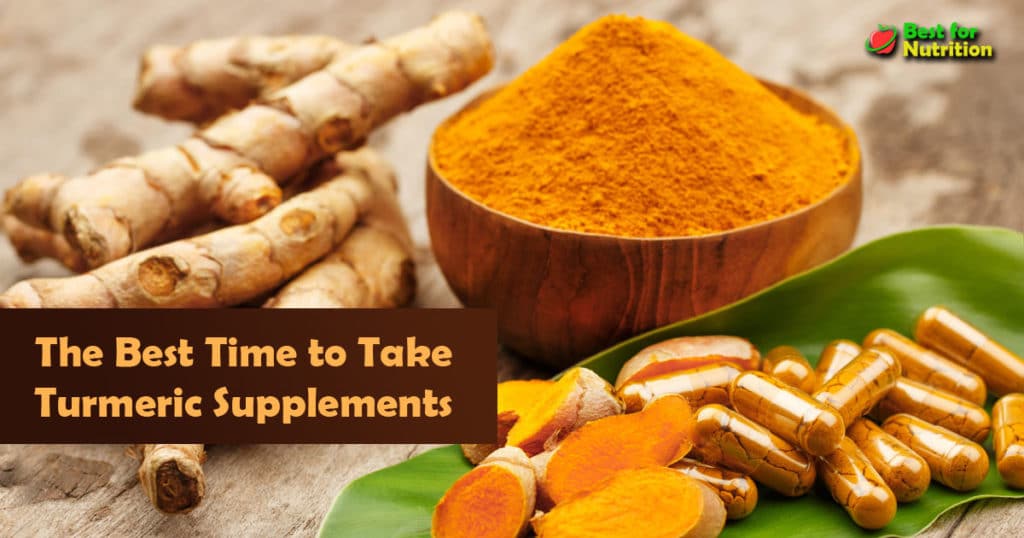
The Health Benefits of Turmeric
Before we get to the timing and dosages of turmeric, here are some of the benefits turmeric offers you:
- Curcumin has strong anti-inflammatory properties (1). It acts by blocking specific biological pathways that are responsible for inflammation (2).
- Curcumin supplement therapy can reduce knee pain in osteoarthritic patients (3).
- When taken regularly for about 3 months, turmeric supplements have shown to bring about a dip in cholesterol and triglyceride levels in overweight individuals (4).
- Studies indicate that curcumin supplements can protect the heart by preventing cardiovascular problems like atrial arrhythmias (5).
- Chronic kidney disease patients on turmeric supplements have experienced a marked reduction in itching and inflammation (6).
- Curcumin therapy has helped in preventing prediabetic individuals from progressing to type 2 diabetes by improving the overall function of insulin-producing cells (beta cells) (7).
- Turmeric has a soothing effect on the digestive system. It helps in internal cleansing and can be used as a detox tonic.
Summary: Curcumin present in turmeric is responsible for benefits like anti-inflammatory and antioxidant effects of turmeric. It can relieve pain, lower cholesterol, and provide protection from heart disease and prevent diabetes.
Turmeric Vs Curcumin: How to Take Turmeric Correctly
Timing: When is the Best Time to Take Turmeric Supplements?
The best time to take turmeric supplements would be when you are on an empty stomach. This is when maximum absorption of turmeric takes place.
The best way of consumption, though, would be having them with fats or black pepper.
Turmeric milk is an excellent recipe in which you combine the milk fat and turmeric along with a pinch of pepper.
If that doesn’t sound palatable for you, you can always try having turmeric supplements at a gap of three or four hours from your meals.
From Powders to Extracts: What is the Best Form of Turmeric to Take?
Turmeric can be added to your food or beverage as a spice or can be taken as a supplement. The idea is to maximize the supply of curcumin to enjoy the medicinal benefits of turmeric.
Turmeric/Curcumin Supplements: Turmeric supplements are available commercially in various forms like capsules, powder, liquid, and gummies. If you find it irksome to swallow pills, feel free to go for easy-to-use chewable gummies or liquid supplements.
The quantity of curcumin intake can be adjusted conveniently while using powder or liquid form. Several formulations have additional ingredients like black pepper for greater bioavailability and ginger or probiotics for boosting gut health.
Turmeric powder: Turmeric powder used in the kitchen is produced by grinding dry turmeric roots. The constituents of turmeric powder are not just limited to curcumin.
Turmeric Extract: Turmeric extract, on the other hand, is prepared by mixing shredded turmeric roots in edible solvents and straining it after many weeks to obtain a strong concentrate.
Curcumin Extract: Curcumin extract, which constitutes just 3% of turmeric root, is prepared through a complex process of chromatography.
A point to be noted is that curcumin is lowest in turmeric powder, about 95% in turmeric extract, and 100% in curcumin extract (8).
Your health provider will be the best person to decide which form of turmeric/curcumin supplement is right for you.
How Much: What is the Recommended Dosage of Turmeric/Curcumin?
Turmeric dosage can vary from 500mg to 2000mg per day and it typically depends on the form in which it is consumed as the focus lies on the curcumin concentration primarily.
On the basis of different clinical trials here are the dosages recommended for a specific clinical condition (3), (4), (6).
- For lowering lipid levels: 1.4 grams of turmeric extract per day divided into two doses can be used for about 3 months
- For skin health: Turmeric improves skin quality remarkably owing to its antioxidant property. 500mg of turmeric three times a day for a period of 2 months is recommended. It can be shortened to one month when a supplement with the combination of turmeric extract and black pepper is taken.
- For joint health: 500mg of turmeric extract four times per day for one to one and a half months.
- For gut health: Supplement containing turmeric along with ginger proves beneficial. Plain turmeric taken 4 times per day for a week can relieve stomach upset.
You need to check with your physician and also go through the list of directions on the supplement bottle.
Long-term usage of high doses of turmeric and curcumin is not advisable as there is no research suggesting its safety.
Summary: Turmeric can be taken anywhere between 500mg to 2000mg for maximum health benefits like pain relief and lowered lipid levels. It is not safe to consume heavy doses of turmeric or curcumin for longer periods.
Bio-Availability: How to Improve Turmeric & Curcumin Absorption
How long turmeric stays in your system determines how beneficial it can be for you. An important fact to be considered is that turmeric and curcumin cannot be absorbed within the body easily.
So when buying a turmeric or curcumin supplement, ensure that it has added ingredients to enhance its absorption. Dietary fats and pepper are two such ingredients.
Dietary Fats: Turmeric is a fat-soluble substance hence, your food recipes should combine turmeric with fats in the form of cooking oil. Alternatively, turmeric supplements can be taken during a fatty meal or along with omega 3 fatty acid supplements.
Black Pepper: Piperine, a substance inside black pepper, has shown to increase the bioavailability of turmeric by stopping the breakdown of turmeric compounds in the gut and liver. This way the turmeric compounds remain in the body for a longer duration thereby, increasing the positive effects of turmeric.
Summary: Turmeric and curcumin have very low bioavailability owing to their poor absorption from the gut and decreased metabolism. Their absorption is enhanced in the presence of fats and black pepper.
The Risks and Side Effects of Turmeric Supplements
Though very rare, side effects have been reported from the short-term use of curcumin supplements.
Most of the adverse effects are related to the digestive system like stomach ache, diarrhea, nausea, vomiting, and constipation (14).
One of the most intense adverse effects in the form of abnormal heart rhythm was noted in a person who took doses as high as 1.5gm to 2.25gm of the supplement twice daily (15).
More research is needed with regards to determining any additional adverse effects of curcumin supplements for consumed over longer durations.
Summary: Mild adverse effects in the form of stomach upset have been reported in cases of short term use of turmeric supplements.
FAQs
Can you Take too Much Curcumin?
At low doses, curcumin supplements have reported being safe.
According to different studies, a dose that falls in between 0.49gm to 2.1gm has no apparent adverse effects.
The World Health Organization (WHO) suggests that turmeric supplements when taken as 1.4mg for each pound of body weight, is an acceptable dose when consumed on a daily basis (16).
A dose higher than 1g/day has caused a mild digestive disturbance in some individuals whereas skin rash has been observed in those who had very high doses like 8g per day.
Even though the chances of occurrence of such side effects are very slim, it is always better to avoid an excess of everything. To understand how much is too much follow the directions on the supplement pack.
Most importantly, listen to your body. Start with a small dose and watch for any alarming signs and only then increase the dose if all works well.
In any case, keeping your doctor informed about your intake of supplements is mandatory.
Summary: Though low doses of curcumin or turmeric are safe and side effects of a high dose are mild, it is always better to consume a safe amount as mentioned in the supplement packing and recommended by your doctor.
Who Should Avoid Curcumin?
It is always recommended to seek advice from your doctor before starting off any kind of supplements even if they are herbal. Caution is strictly advised in a specific group of people like-
- Pregnant women and lactating mothers– There is a dearth of scientific research in understanding how safe turmeric supplements are during pregnancy or breastfeeding.
- Gallbladder issue– Those with an existing gallbladder problem may experience a worsening in their condition as turmeric causes gallbladder contraction (9).
- Bleeding problems– Turmeric slows down the clotting process. This can lead to aggravation of the bleeding problem (10).
- Renal stones– The chances of kidney stone formation becomes high as turmeric is rich in oxalate. Oxalates combine with calcium to form kidney stones (11).
- Iron-deficiency– It can inhibit the absorption of iron (12). Hence, it needs to be strictly avoided in patients with iron deficiency.
- Diabetes– Curcumin can cause a steep drop in blood glucose levels in diabetics (13).
There isn’t any problem with consuming turmeric as an ingredient in food in these specific groups of individuals.
Summary: Turmeric supplements need to be strictly avoided during pregnancy or breastfeeding. As these supplements can interact with other drugs they should not be used by those with medical problems like diabetes or iron deficiency.
The Final Note
Turmeric/curcumin supplements are available in different forms like tablets, powders, liquids or even gummies.
Ideally, turmeric supplements should be taken after fasting so that the absorption is at its peak. Three or four hours before or after meals is considered the best time to have turmeric supplements.
To ensure that you receive the maximum benefits of turmeric, a dose of 500mg to 2000mg is ideal.
The dose you need to take depends on the medical condition which you intend to get cured of because official dose recommendations for every condition is not available.
Side effects, in general, are quite minimal yet, it has been found that a certain group of people should abstain from using turmeric supplements.
Finally, any supplement, even the safest one, requires your doctor’s expert opinion and needs to be used with caution.
